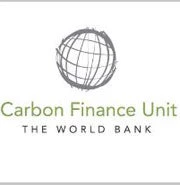I’m amazed at what Africa is doing to address climate change, a crisis in the making that could have devastating consequences on the continent, its agriculture, and millions of people who had little role in creating it.
The latest updates came during the 4th Africa Carbon Forum in Addis Ababa, Ethiopia. What I heard there was quite a change from the Forum four years earlier and not what I had expected.
I was in Addis Ababa to train the Rural Energy Agencies and Designated National Authorities (DNAs) of African countries on carbon markets, and to share my experience in developing recently approved methodologies to account for suppressed demand. There was a wide recognition among participants that we need to take this into account if we want to see Africa access the carbon market in any meaningful way.
This year’s event was the largest Africa Carbon Forum to date, with over 800 participants representing 80 countries, including 34 African ones. I got an opportunity to meet government officials, project developers, non-governmental organizations, financial institutions, bilateral and multilateral banks, regulators and consultants.
Africans are not waiting. I was amazed at the variety of initiatives the countries on the continent are taking, from formulating energy and climate change policies to developing nationally appropriate mitigation actions (NAMAs), and a variety of projects and programs under the Clean Development Mechanism (CDM). To date, more than 30% of CDM Programmes of Activities (PoAs) under validation, and 3 out of 17 registered PoAs, are from Africa. For example, almost every country in Africa is developing a program to improve the efficiency of cook stoves, partly as a way to address the issue of ‘black carbon’.
Also, a lot is happening in the forestry and agriculture sectors. It is great to see how capacity and knowledge has increase. They have become excellent advocates of the carbon dimension in sustainable land management projects are are in a position to talk on the challenges for Africa with respect to small-holders farmers, land tenure, investments, benefit sharing, and climate change effects, among others.
What I observed is that there is no dearth of ideas. Look at what Ethiopia is doing in reforestation; look at what Ghana is doing in piloting two NAMAs in energy and agriculture sector; look at what Tanzania is doing in reforming their electricity sector. These countries are in a position to inspire others globally, and they are learning very quickly.

Some developments over the last 6 to 12 months confirm this. For example, US project developer UpEnergy and Dutch utility ENECO are planning to set up a program on cook stoves in Uganda that would distribute 500,000 stoves to 95% of the population and could generate 1.2 million carbon credits by 2020. Another example is the Ugandan DNA which is training local project developers as part of a capacity building effort co-financed by the Belgian Development Agency. Germany has given state-owned KfW Banking Group €10 million to kick-start an initiative to boost investment in mitigation projects in the world’s poorest countries, especially in Africa.
The World Bank has recently launched two new carbon instruments – the Carbon Initiative for Development and the third tranche of the BioCarbon Fund – that target greenhouse gas emission reductions in least developed countries, most of which are in Africa. During the Forum, my colleagues Brice and Elly explained to an enthusiastic crowd how project developers can take advantage of these ‘next generation’ carbon instruments to build their capacity, access upfront financing, generate carbon revenues from energy, forestry and land use projects and then sell the carbon credits that they get to the World Bank.
Many African leaders at the Forum stressed that development is their priority, and greenhouse gas reductions are co-benefits. It was inspiring to see how many people are ready to challenge the status quo and are now in a position to address the challenges ahead – on their own terms.
Africa still needs support and solutions that can help reduce the cost and complexity of carbon finance and improve their livelihoods. But its stakeholders are developing and implementing solutions that fit their circumstances and they are leading.


Join the Conversation